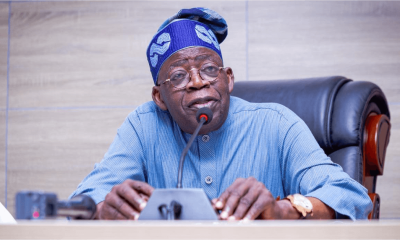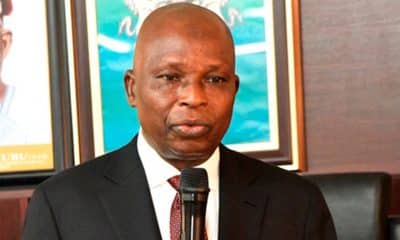2023 Election
Tinubu Knows My Party – Former Emir Sanusi Speaks Ahead Of 2023 Elections

Former Emir of Kano, Sanusi Lamido has declared that he would not be openly supporting any political party in the 2023 election.
Sanusi who spoke on Saturday as the keynote speaker of an event organized by the Kaduna State Investment Promotion Agency said speaking the truth to power cost him his job as the Central Bank Governor.
While saying the situation in Nigeria is not about any particular party, Lamido added that the presidential candidate of the All Progressives Congress (APC), Asiwaju Bola Tinubu who was also at the event knows his party is Nigeria.
“I keep repeating, hope you remember that I lost my job at the Central Bank for this same problem. It is not about a particular party. I have no party. My party is Nigeria. This is the problem we had in 2014. Asiwaju (Tinubu) knows my party is Nigeria,” he said.
NNPC Figures Might Be Inaccurate
Speaking further, Sanusi questioned the statistics of the Nigerian National Petroleum Company (NNPC) Limited concerning fuel consumption in Nigeria.
According to him, the submission that Nigerians currently consume 66 million litres of petrol per day is not justifiable.
The former Emir also questioned how daily consumption jumped by about 50% from 40 million litres in 2019 to 66 million litres as claimed by the NNPC.
The former CBN Governor called for accountability in the activities of the NNPC.
In his words, “NNPC tells us officially that we are consuming 66 million litres per day…We are consuming more than Indonesia, Pakistan, Egypt, Cote d’Ivoire and others.
“In 2019 officially, we were importing 40 million litres per day. In 2022, officially, we are importing 66 million per day. In three years, we have increased our petrol consumption by 50%. Please tell me, is it the population? Is it the number of cars? Just ask yourself if it makes sense that in three years you increase your consumption of petrol by 50%.”












